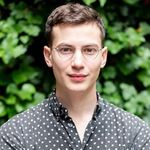The 23-years-old climate activist from Uganda spoke to us about climate change in Uganda, the Congo Rainforest, and being a black organizer of climate strikes. You can follow her on twitter and Instagram.
Ecosia: Does the climate crisis affect people in Uganda already?
Vanessa Nakate: I've seen people being affected by the climate crisis in Uganda. We are facing extreme weather conditions – torrential rains – which have caused flooding and landslides in vast parts of the country. It's affecting the availability of food and clean water. People are devastated by the losses they've encountered – they've lost property, farms, and loved ones. It's heartbreaking to realize that they are already looking climate change in the face. Only the privileged can escape this problem, and I believe it's going to get worse.
What are you trying to achieve with your activism?
I try to create awareness of the problems we are facing in Uganda, and across the African continent. I also try to help fellow activists to be heard – to be given an opportunity to tell their stories. Thirdly, I'm trying to introduce renewable energy in schools and teach students about climate change, and what we can do to combat the crisis.
What message did you bring to Davos? Do you think these conferences and summits are working?
When I went to Davos, I was invited by the Arctic basecamp. At this basecamp, we made the decision to sleep in tents, despite the cold. This was a form of protest to let our government leaders and business leaders know that we've left our comfort zone, and that it's time for them to do the same, e.g. by letting go of the fossil fuel industry. Saving the planet won't always be comfortable.
With these conferences, activists are given an opportunity to speak up and demand action. The issue is that we tend to see more words, not actions, in their aftermath.
You're very vocal about the Congo rainforest. Why?
The Congo Rainforest is the largest rainforest in Africa, the second largest in the world. It's a representation of all the forests in Africa. The Okapi, and some other species, are not found anywhere else in the world. But this forest also has minerals and oil that attract investors, destruction and deforestation. So I started this strike that many people joined.
There are many different solutions to combat the climate crisis. One of them is protecting and expanding forests.
What has inspired you to become an environmental activist?
In May 2018, before my graduation, I started looking into the problems people face in my community. And I was really surprised to find that climate change was a major problem for them. I read more about it to understand its causes and effects. And I decided to create awareness about it, so others can understand and act on it, too.
The erasure of black people and people of color is a problem in many movements, including environmentalism – white organizers still dominate the conversation. What's your experience of being a black organizer of climate strikes?
It hasn't been easy. It's hard to get the media to amplify your voice and tell your story. My biggest challenge is what happened to me in Davos. It was quite a blow. It just showed the continuous erasure of black people and people of color in different movements, in this case the environmental movement. It's something that has been going on for a while, and hopefully it will come to an end soon.
How can people support you and your cause?
People can support me by following my work, sharing my work, and helping to amplify my voice. But the best way people can help me and my cause is by supporting other activists across Africa. Giving them a voice, giving them a platform, giving them an opportunity to speak up and talk about the challenges they face in their various countries. And giving them an opportunity to provide the solutions that they have. Because every voice has a story to tell. Every story has a solution to give. And every solution has a life to change.
